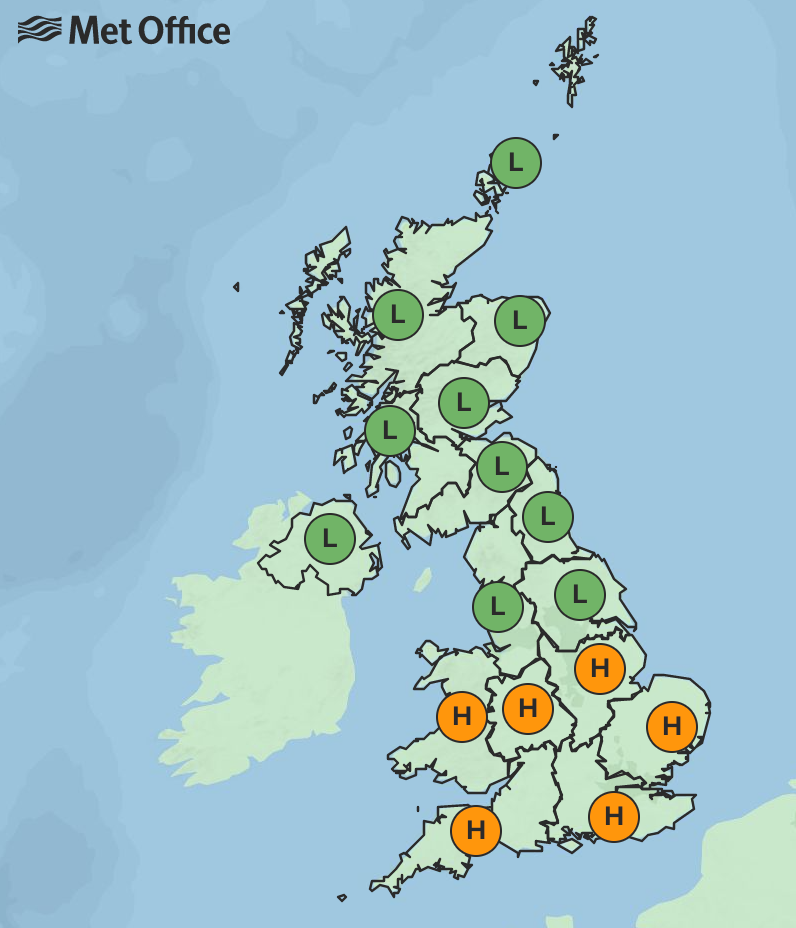First high pollen warning of the year issued for hay fever suffers – see alerts in your area
Five days of high pollen counts in store for many across the UK

Hay fever season has returned with the first pollen bomb of the year set to drop on the UK.
The Met Office issued its first ‘high’ pollen alert on Tuesday, which covers most of England and Wales.
Pollen levels in Northern Ireland, the North West, North East, and Yorkshire and the Humber will remain low in the coming days, however.

All regions south of these areas are subject to high pollen levels on Tuesday and Friday, while Wednesday and Thursday will bring a mix of medium and high warnings.
Hay fever is an allergic reaction to pollen, typically when it comes into contact with your mouth, nose, eyes and throat.
Sufferers are usually worst hit between late March and September, especially on warm, windy and humid days, when the pollen count is at its peak.
Symptoms of hay fever include sneezing, coughing, having a runny or blocked nose, drowsiness, and itchy, red or watery eyes.


According to the Met Office, London, the South East and the east of England will be subject to a high pollen count on Wednesday.
By Thursday, the South West, Wales and the Midlands will also be affected by high levels of pollen, while a return to medium levels in London, the South East, and the East of England will bring some relief.
By Friday and Saturday, however, all regions will see pollen levels shoot back up to high.
Millions of Britons are affected by hay fever, with many relying on antihistamine drops, tablets or nasal sprays to ease their symptoms.


Simple ways to keep the symptoms at bay include smearing Vaseline around your nostrils to trap pollen or wearing wraparound sunglasses to stop pollen from getting into your eyes.
Other tips include showering and changing your clothes after you have been outside and vacuuming regularly.
Most can manage their hay fever with a quick trip to the pharmacy, but the NHS advises that you seek advice from a GP if your symptoms get worse or do not improve after taking medicine.
For more information on treating hay fever, see the NHS’ dedicated webpage.






Join our commenting forum
Join thought-provoking conversations, follow other Independent readers and see their replies
Comments